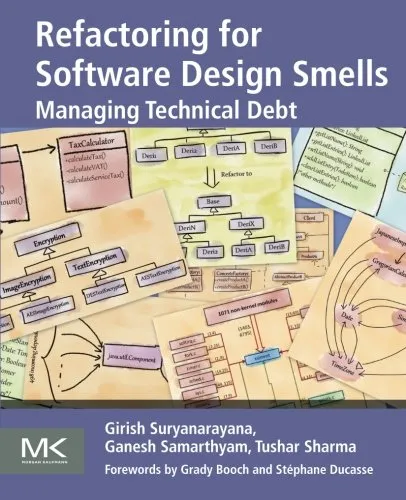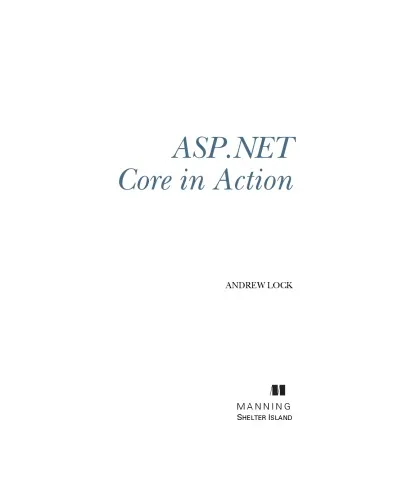Refactoring for Software Design Smells: Managing Technical Debt
4.5
Reviews from our users

You Can Ask your questions from this book's AI after Login
Each download or ask from book AI costs 2 points. To earn more free points, please visit the Points Guide Page and complete some valuable actions.Related Refrences:
Introduction to "Refactoring for Software Design Smells: Managing Technical Debt"
Welcome to an in-depth exploration of "Refactoring for Software Design Smells: Managing Technical Debt," a book authored by Girish Suryanarayana, Ganesh Samarthyam, and Tushar Sharma. Our book aims to provide software developers and engineers with practical approaches to effectively managing technical debt by identifying, analyzing, and refactoring design smells. This guide serves as an essential resource for those who are determined to maintain the quality and sustainability of their software systems.
Detailed Summary of the Book
The book delves into the concept of design smells—symptoms of poor design that indicate deeper problems in the codebase—and presents proven techniques to refactor these issues. Broken into six comprehensive chapters, the content walks you through identifying design smells, understanding their causes, and determining the best strategies for refactoring. Throughout the book, we provide real-world examples and case studies that illustrate the process of mitigating technical debt effectively.
A distinctive feature of the book is its emphasis on design patterns and anti-patterns, providing guidance on how to differentiate between them. By focusing on design smells, we shed light on their impact on software sustainability and long-term project success. Additionally, we provide insights into aligning refactoring efforts with business goals and strategies, ensuring that technical debt is managed in a way that aligns with organizational objectives.
Key Takeaways
- Identification and Prioritization: Learn how to identify different types of design smells and prioritize them based on their impact on the software project.
- Refactoring Techniques: Gain access to a range of refactoring techniques tailored to resolve various design smells effectively.
- Impact of Technical Debt: Understand how unchecked technical debt can affect a project's success, leading to increased maintenance costs and decreased system agility.
- Integration with Business Strategies: Explore methods to align technical debt management with the overarching business goals, ensuring technical decisions support long-term strategies.
Famous Quotes from the Book
"Technical debt is not merely a technical issue; it's a symptom of how well an organization balances its immediate goals with the need for sustainable progress."
"Design smells signal a need for immediate attention, but they also present an opportunity to improve, innovate, and align with future objectives."
Why This Book Matters
In an era where software systems are integral to business operations, managing the hidden costs of software degradation has become paramount. This book is pivotal for software professionals who are keen on mastering the art of maintaining high-quality code. "Refactoring for Software Design Smells: Managing Technical Debt" equips readers with not just theoretical knowledge, but actionable insights that can be applied in real-world scenarios.
The relevance of this book extends beyond technical roles; it is a vital resource for project managers and stakeholders who need a clear understanding of the implications of technical debt. By framing technical debt within the context of business strategy and technical excellence, the book ensures that organizations can strike a balance between innovation and maintaining robust, agile systems.
Free Direct Download
You Can Download this book after Login
Accessing books through legal platforms and public libraries not only supports the rights of authors and publishers but also contributes to the sustainability of reading culture. Before downloading, please take a moment to consider these options.
Find this book on other platforms:
WorldCat helps you find books in libraries worldwide.
See ratings, reviews, and discussions on Goodreads.
Find and buy rare or used books on AbeBooks.
1398
بازدید4.5
امتیاز0
نظر98%
رضایتReviews:
4.5
Based on 0 users review
Questions & Answers
Ask questions about this book or help others by answering
No questions yet. Be the first to ask!





































